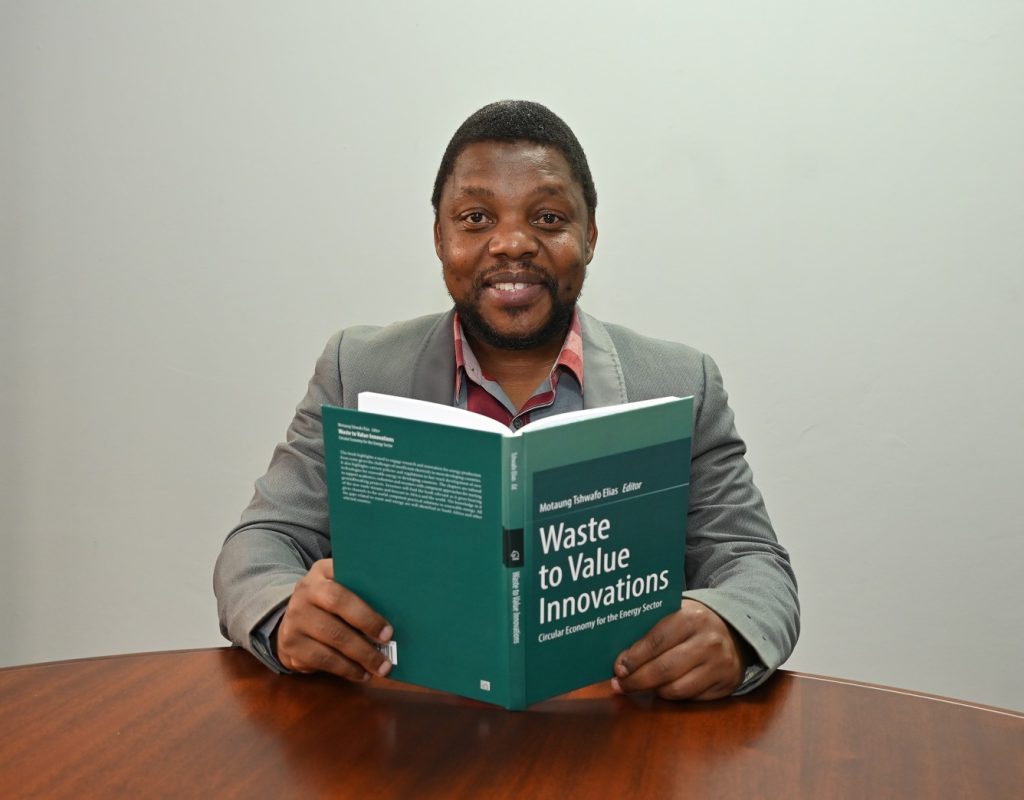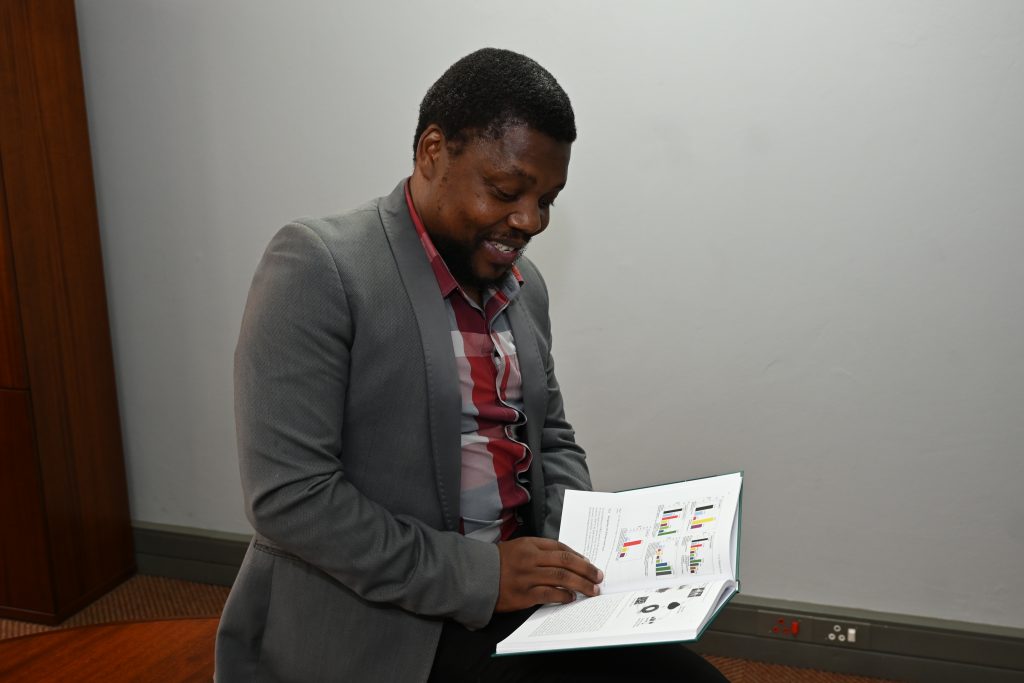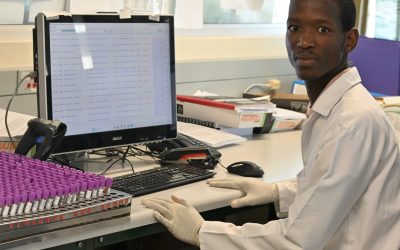“The revolution should start everywhere and be everywhere in every corner of Africa.” These are the impassioned words of Professor Tshwafo Elias Motaung, Senior Professor and Head of the Material Science Niche Area at Sefako Makgatho Health Sciences University (SMU), whose latest book, Waste to Value Innovations: Circular Economy for the Energy Sector, presents a transformative vision for how Africa can convert its growing waste problem into a sustainable energy solution.
 With a PhD in Chemistry from the University of the Free State and a Postgraduate Diploma in Education from UKZN, Motaung is no stranger to turning complex research into practical innovations. His central philosophy is clear: “To convert scientific and indigenous knowledge into powerful innovation that is capable of influencing the economy.”
With a PhD in Chemistry from the University of the Free State and a Postgraduate Diploma in Education from UKZN, Motaung is no stranger to turning complex research into practical innovations. His central philosophy is clear: “To convert scientific and indigenous knowledge into powerful innovation that is capable of influencing the economy.”
In an exclusive interview with the SMU Pulse, Motaung revealed how his journey into waste-to-energy research was shaped by years spent observing energy poverty and unmanaged waste in rural and mining communities. “I was constantly confronted with the need for a solution that would address both waste management and energy production,” he says. “It became clear that the solution wasn’t just about managing waste or producing energy, but about reimagining waste as a resource.”
The book, launched to widespread academic and industrial interest, compiles years of research and on-the-ground student projects that have turned everyday waste into usable products, such as building materials and biogas. “These were not just lab exercises,” Motaung says, “but community-based prototypes. This is the essence of the circular economy – creating systems where waste becomes the beginning of new value chains.”
 A key highlight of Waste to Value Innovations is its insistence on the circular economy model as a blueprint for African development. In this model, waste is repurposed, resources are reused, and value circulates within local economies. “This decentralised model is incredibly promising for developing countries,” Motaung argues. “It lowers dependency on the national grid, reduces energy costs, and addresses environmental challenges like pollution and landfill overflow.”
A key highlight of Waste to Value Innovations is its insistence on the circular economy model as a blueprint for African development. In this model, waste is repurposed, resources are reused, and value circulates within local economies. “This decentralised model is incredibly promising for developing countries,” Motaung argues. “It lowers dependency on the national grid, reduces energy costs, and addresses environmental challenges like pollution and landfill overflow.”
One of the book’s strengths lies in its synthesis of scientific rigour and indigenous knowledge, offering readers not only technical solutions but culturally grounded insights. “Too often, these domains operate in silos,” asserts Motaung. “This book challenges that fragmentation by demonstrating how local knowledge can enhance scientific acceptance and relevance.”
From case studies in South Africa to broader insights across the continent, the book offers practical examples of how circular economy innovations have been implemented with tangible success. “They serve as proof that scientific innovation, when aligned with local context, can lead to scalable, impactful solutions,” he notes.
But the road is not without challenges. Motaung points to inconsistent policy frameworks, lack of enforcement, and fragmented governance as barriers to progress. “We need regional collaboration to harmonise standards, co-develop enabling policies, and encourage innovation while safeguarding public and environmental health.”
The book also acts as a call to action for researchers. Motaung identifies urgent research gaps in modular conversion systems, rural energy delivery, and low-cost technology. “We need interdisciplinary research that not only recovers energy but also captures valuable materials from waste,” he says.
Beyond academia, the book is pitched at industry stakeholders, investors, and policymakers, providing a roadmap for commercialising waste-to-energy solutions. “Investors will find this book particularly useful,” he says. “It offers a bearing on new waste streams and energy forecasts in Africa and globally.”
Ultimately, Waste to Value Innovations is more than a publication—it is a manifesto for a more sustainable, resilient Africa. In the face of energy poverty and environmental degradation, Motaung believes that local innovation, informed by both science and tradition, can light the way forward.
As he puts it: “Africa’s future doesn’t lie in imitation but in innovation. Waste is not the end—it’s the beginning.”
By Tumelo Moila



